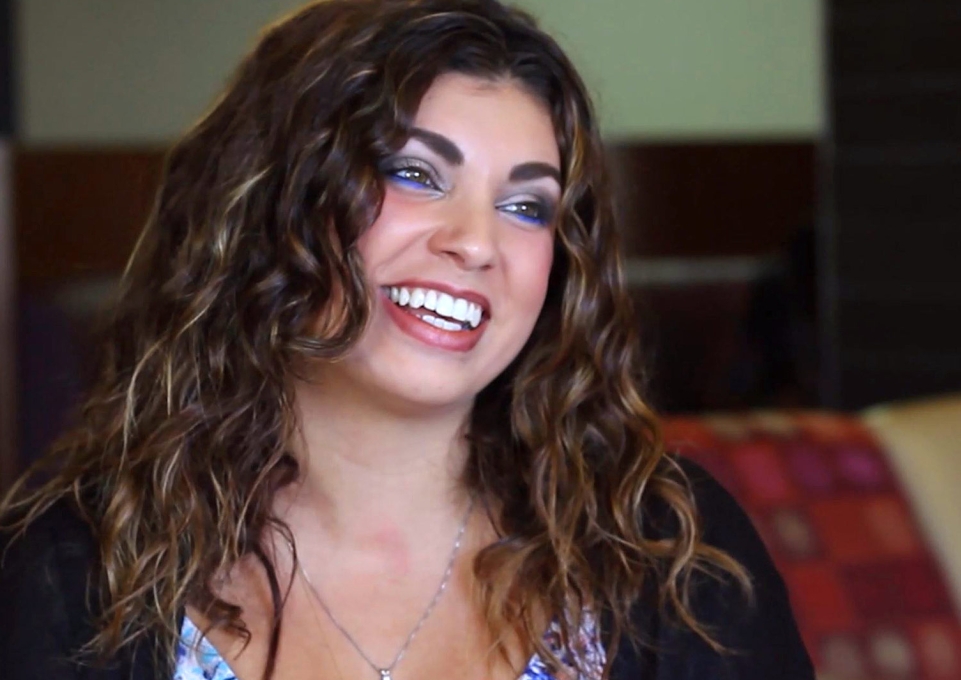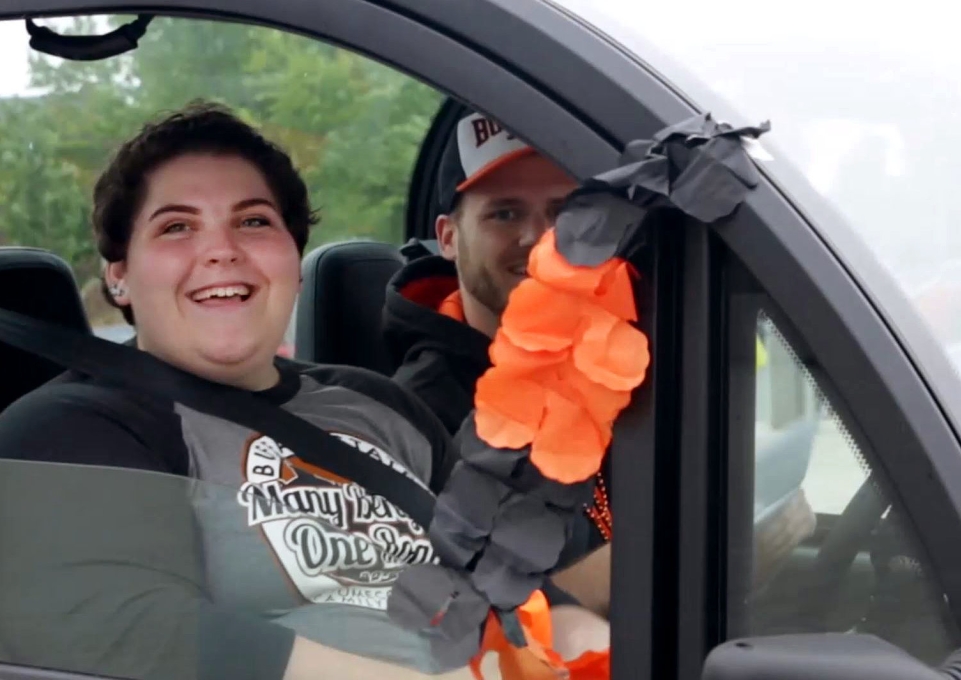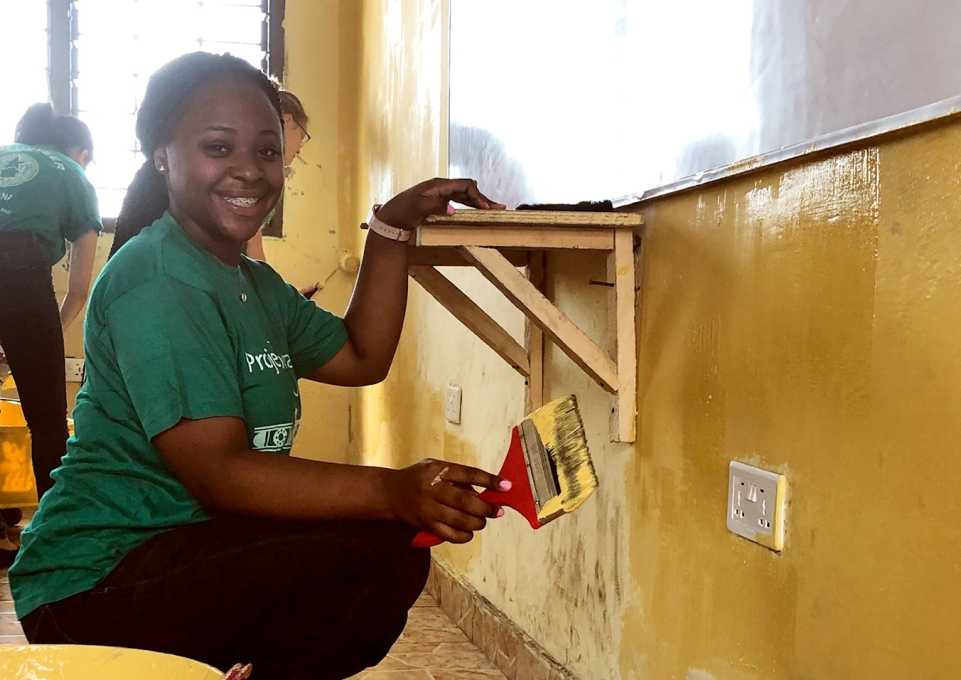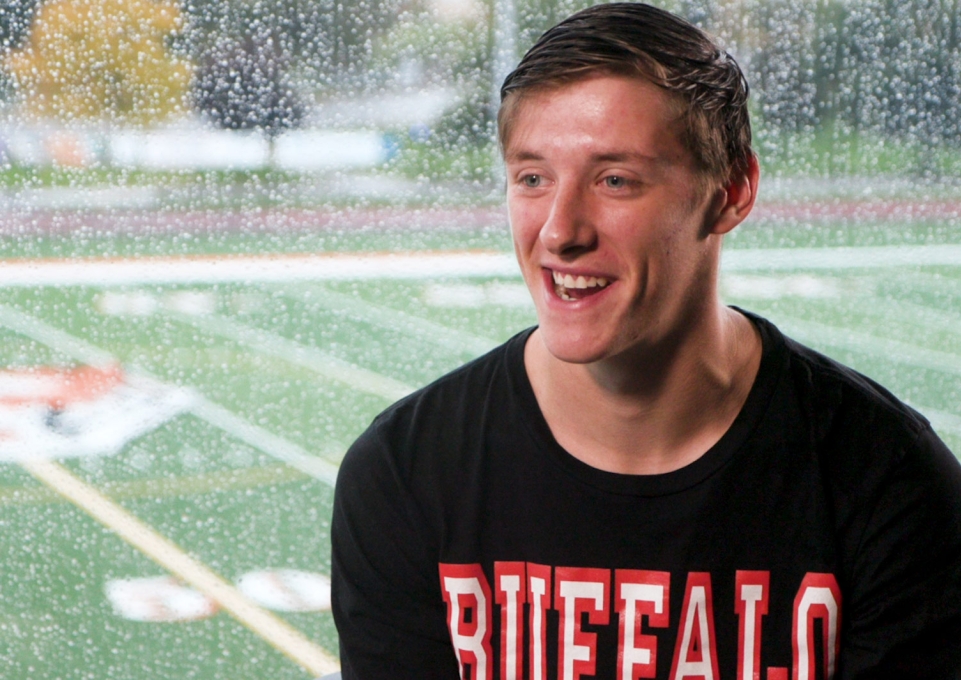
Samantha Katus
Choosing Forensic Chemistry
Samantha Katus knew from an early age that she wanted to be a coroner. She realizes dissecting bodies isn’t your typical eight-year-old girl’s dream. But it’s one this Kenmore West High School graduate has pursued with dogged determination while working full time and holding several campus leadership positions.
“It’s really amazing, getting to see how all the insides of the body work,” Katus said with a smile. “I like puzzles and it’s like that, working backward to figure something out.”
Katus, a commuter student who lives in North Buffalo, chose Buffalo State for its forensic chemistry program, which is certified by the American Chemical Society. Now she wants to pursue a doctorate in pathology and is hoping to land an internship with the Erie County Medical Examiner’s Office.
This is an auspicious time for a student like Katus. Forensic science is an exploding field. The Bureau of Labor Statistics has predicted that between 2014 and 2024, there will be a 27-percent increase in open positions for forensic science technicians. Strong classroom preparation is key to getting a job, and Katus said that’s exactly what she has received at Buffalo State.
"I really think involvement is what changed my experience at Buffalo State, making friends and developing presentation and leadership skills."
Working Hands-On
“In our 300-level criminal lab you come into class and there will be a fake dead body,” she said. “You have to write up formal lab reports just like you’re a criminal lab technician. You take the pictures and try to figure out what happened by analyzing blood splatters and trajectory angles to see what weapon was used. It’s one thing to read a case out of textbook; it’s another to get hands-on experience for what you will be doing in the field.”
And she likes the small class sizes Buffalo State offers.
“All the professors know your name and you do make connections,” she said. “I wouldn’t want to go through four years of school and not know my professors. Any one of them would be willing to write a letter of recommendation for me.”
She noted that two in particular have been essential to her success: instructional support specialist Anne Marie Sokol who helped with resume-building and writing letters of recommendation for internships, and associate professor and research adviser Maria Pacheco, who oversaw a project Katus presented this month at a forensic convention in New Jersey.
Along with presenting the research project, Katus joined three other Buffalo State students in a competition she described as “Jeopardy for chemistry.”
Commuter Student Involvement
While Katus anticipated the hard work required for such major—coupled with a minor in psychology—she didn’t visualize life outside of the classroom. She certainly didn’t anticipate falling in love with the campus and all that it has to offer.
“Being a commuter student, it can be hard to relate to campus,” she said. “My freshman year, I was that student who went from school to work to home and didn’t get involved. I was miserable. Then I joined the Alpha Sigma Tau sorority and found other organizations from there.”
She’s now president of Alpha Sigma Tau and is chief justice of the International Greek Association. She also serves as vice president of the campus’s Chemistry Forensics Club, is an orientation leader, a tutor and student mentor, and a member of the Homecoming Committee and the Orange Crush booster club.
She’s been able to balance these activities while working nights and weekends as a pharmacy technician at Wegmans and maintaining a grade point average (GPA) of 3.5 or higher.
This past year she took on a final role—ambassador to the Commuter Club where she challenges other commuters to plug into the myriad activities and organizations available to them.
“I tell them that, yes, academics should always come first. But it’s been proven that the more you get involved, the higher your grades because you’re working toward something,” she said. “Most organizations require a minimum GPA, and (being involved) is like a light at the end of the tunnel. If you’re just going from class to the dorm or class to home, there’s not as much incentive to keep your grades up.”
Through the four years she has been at Buffalo State, Katus feels like she’s been transformed into a better version of herself.
“When I started, I was reserved and very shy. I didn’t want to take charge of things. I was more willing to let others take charge and just focus on school and work,” she said. “Getting involved taught me that it’s OK to step up and take charge. People will look up to you, especially if you know what you’re doing and you’re willing to put in the time and effort.”



